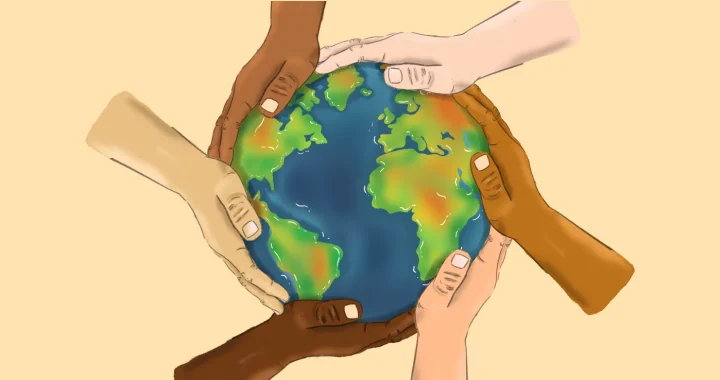From Youth Initiative to the International Court of Justice: Advisory Opinion on Climate Change

Photo: Matthew TenBruggencate on Unsplash.
Who is responsible for protecting the environment? The escalating climate crisis, driven by ever-increasing carbon emissions, has raised questions about the responsibility of countries in protecting the environment. In July 2025, the International Court of Justice released an advisory opinion on the obligations of states regarding climate change.
Climate Impacts in Pacific Islands
The impacts of climate change are felt worldwide; unfortunately, some countries are worse affected than others. Small Island Developing States (SIDS) have been experiencing extreme sea level rise, with it increasing between 5–15 cm in 2023. A report by the World Meteorological Organization states that 34 hazard events were reported throughout 2023, impacting over 25 million people in the Pacific islands.
These dire conditions call for global support for climate resilience, especially in developing countries and SIDS like the Pacific Island Countries. In 2019, a youth-led organization called Pacific Island Students Fighting Climate Change began campaigning to persuade Pacific Island Country leaders to bring this matter to the International Court of Justice (ICJ).
This initiative garnered support from other Pacific Island countries and gained international recognition in 2021, when the Pacific Island Nation of Vanuatu brought the initiative to the United Nations General Assembly (UNGA). Two years later, the request was formalized in a resolution adopted by the UNGA, calling for the ICJ to issue an advisory opinion on the obligations of states relating to climate change.
ICJ’s Advisory Opinion on Climate Change
In July 2025, the ICJ finally issued the advisory opinion to answer two questions: (1) What are the obligations of States under international law to ensure the protection of the environment? and (2) What are the legal consequences for States under these obligations when they cause harm to the environment?
The document states that countries that have signed climate change treaties are under binding obligations to ensure the protection of the environment from greenhouse gas emissions generated by human activities. This includes the Convention on Biological Diversity, the Kyoto Protocol, the Paris Agreement, and other internationally recognized agreements. They have the duty to conduct due diligence and utilize all available means to prevent significant harm to the environment, including cooperating with other countries in good faith.
A breach of any obligations will be recognized as an internationally wrongful act and will result in state governments taking responsibility to stop the wrongful actions, ensure non-repetition, and provide full reparation to injured states. Although it is not legally binding, the document holds significant legal and moral authority in the development of international law.
Recognizing Responsibilities
Around the world, countries that suffer disproportionate impacts of the climate crisis are often the most vulnerable ones geographically and economically. These developing countries also contribute way less to the global greenhouse gas emissions than the Global North. The adoption of the ICJ’s advisory opinion on climate change opens a path towards greater international accountability against environmental offenses.
Editor: Nazalea Kusuma

Kresentia Madina
Madina is the Assistant Manager of Stakeholder Engagement at Green Network Asia. She holds a bachelor’s degree in English Studies from Universitas Indonesia. As part of the GNA In-House Team, she supports the organization's multi-stakeholder engagement across international organizations, governments, businesses, civil society, and grassroots communities through digital publications, events, capacity building, and research.


 How Human Behaviour Becomes the Real Engine of Sustainability Action
How Human Behaviour Becomes the Real Engine of Sustainability Action  Germany to Improve Protection Measures for Critical Infrastructures
Germany to Improve Protection Measures for Critical Infrastructures  Data Center Boom: Looking at India and Beyond
Data Center Boom: Looking at India and Beyond  Assessing Indonesia’s Step into Global Carbon Markets
Assessing Indonesia’s Step into Global Carbon Markets  Prioritizing Finance for Nature for Healthy and Resilient Ecosystems
Prioritizing Finance for Nature for Healthy and Resilient Ecosystems  Integrating Indigenous Practices into Australia’s Defense Against Heatwaves
Integrating Indigenous Practices into Australia’s Defense Against Heatwaves